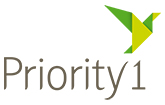Remember a time when kids couldn’t wait to leave home so they could have their own “pad”? Those days are definitely over with one and half million adult children now preferring to continue living with Mum and Dad well into their late twenties (and sometimes older!).
Latest statistics available reveal that over 29% of young adults aged 18-34 continue to reside with their parents. This arises from more young people undertaking higher education and also a tendency to defer marriage. It is estimated that it costs an average family $812,000 to raise two children from birth to age 24.
What’s the effect on parents?
When they have 20+ year old ‘children’ at home the parents are likely to be in their 50s or early 60s and getting ready to enjoy time of their own.
In some instances, where the young ones are fully employed they may contribute to the household costs. If they’re at university parents may well be supporting them or, even if employed, some parents may be reluctant to ask their “children” to pay.
The net effect is likely to be that at the very time when parents should be maximising their retirement funds, they’re still supporting or partially supporting their children. If left on their own, Mum and Dad may well have sold the family home and moved to a smaller property, but now find this impractical under the circumstances.
Focus on your future
If you’re placed in this position, careful planning is essential to ensure you still have the means for a comfortable retirement. You need to seriously consider the following:
- When do you plan to retire?
- What retirement income will you require to support your intended lifestyle?
- How much will you need to have accumulated at retirement?
- How much will you need to save in the meantime?
Armed with this information you can establish a savings strategy and determine how you can meet your objectives. If you need a hand, make an appointment with us and we can guide you through the process. We can’t encourage your kids to ‘fly the coop’, but we can help you manage your finances.
